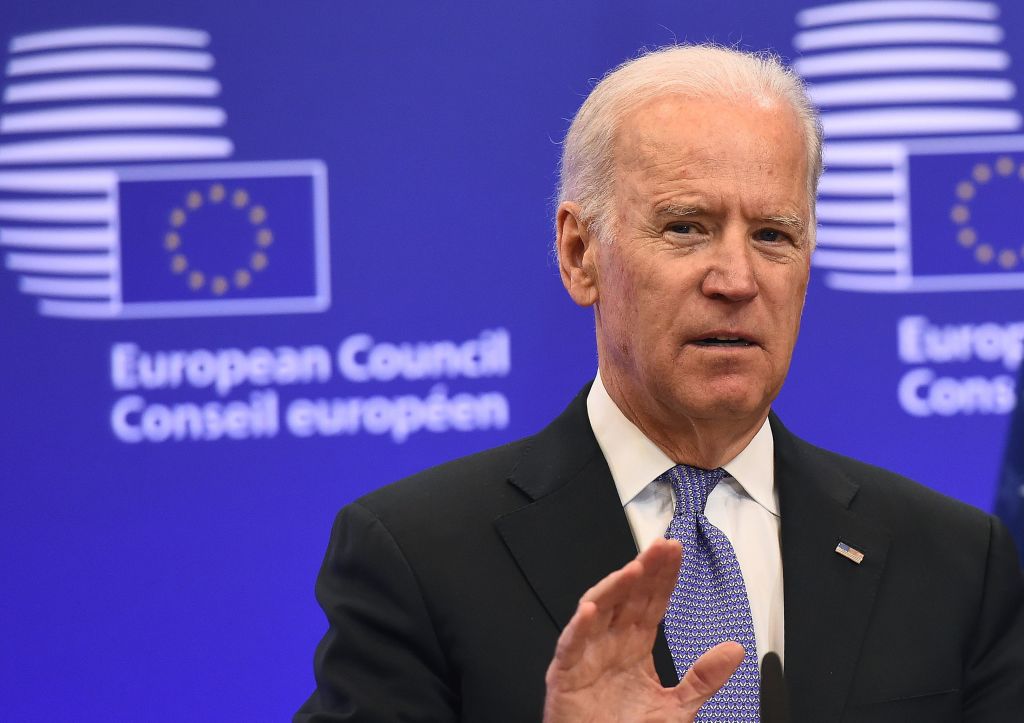A new era of transatlantic cooperation will have begun. The United States will pivot towards Brussels. The trade wars will come to a swift end, and the American president will once again be a respected figure on the other side of the Atlantic.
With Donald Trump finally defeated, if not quite yet evicted from the White House, most commentators are expecting a far closer relationship between Berlin, Paris, Brussels and Washington, with Boris’s Brexit Britain left out in the cold. But hold on. Something is not quite right with that narrative. Instead, the EU seems intent on going to war with Joe Biden.
In the very same week that the veteran politician finally made it to the presidency, the European Union has, oddly, made two extraordinarily aggressive moves against the US.
First, it launched a range of retaliatory tariffs on American goods over subsidies it alleges the American government gives to Boeing. American exporters of stuff as diverse as tomato ketchup and sweet potatoes will now face 25 percent tariffs in Europe. A day later, the EU’s increasingly deranged competition commissioner Margrethe Vestager launched a huge anti-trust action against Amazon with a potential fine of £15 billion ($19.8 billion), serious money even for Jeff Bezos, if it is successful.
As is so often the case, the EU’s claims are self-serving. On aircraft, it is not as if Airbus has ever exactly been self-financing, or has never received any government help. It is virtually a department of the French state. And the anti-trust action conveniently ignores how Amazon’s marketplaces, far from restricting competition, have opened up hundreds of markets to tens of thousands of small companies.
In truth, the EU’s action mostly seems to be about protecting established companies from the relentlessly consumer-friendly technology companies. And of course both actions by the Commission may well be dismissed in the EU’s own courts, as some of its recent decisions have been; the huge £11.7 billion ($15.4 billion) fine on Apple, for example.
But whether they are right or wrong, there can be no question that they are very aggressive. And they will land right on the desk of the new president, who will have little choice but to retaliate. It doesn’t really matter who is in the White House, no American president could allow blatantly unfair attacks on Boeing and Amazon, two of the countries most successful companies, to go unchallenged. They wouldn’t be doing their job if they did. Joe Biden will have to strike back. After all, he is a fairly traditional pork-barrel Democrat. He is not someone who will ignore a threat to American companies and jobs.
[special_offer]
It is hard to understand why the EU couldn’t have held back at least for a few weeks. Probably, like most bureaucratic organizations, it is incapable of flexibility. Once it is set on a path, it can’t change course, no matter how obvious the case for doing so has become.
Yet one point is surely clear. With the departure of Donald Trump, the commercial and trade conflicts between the US and the EU are not going to end anytime soon. In fact, they are about to escalate, as the EU ramps up its protectionism and its war on American technology companies.
True, Biden may not be as sympathetic to the UK as Trump was. His instincts may be to build bridges with Brussels. But his relationship with an aggressive, protectionist, anti-American EU will sour very quickly — and the UK can certainly take advantage of that.
This article was originally published onThe Spectator’s UK website.

























